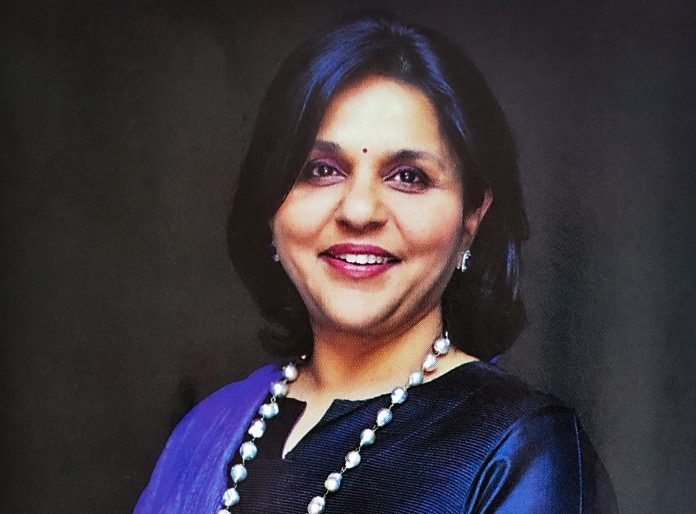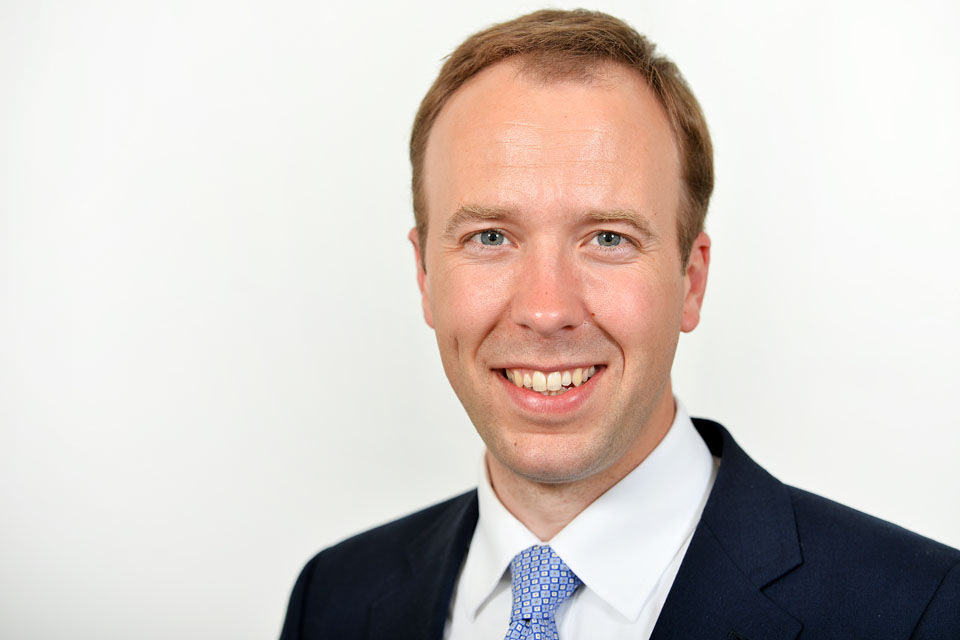The joint managing director of Apollo Hospitals talks about the relationship between private healthcare and the government, and her priorities for the post-Covid-19 world
Sangita Reddy does not sit still. Not only is she joint managing director of Apollo Hospitals, she is also president of the Federation of Indian Chambers of Commerce & Industries (FICCI) and sits on the board of 16 companies in India dealing in everything from healthcare and alternate energy, to real estate and software development.
Talking to HMi by telephone from her office, she rattles off ideas so quickly, it is hard to take them all down.
Few in India have such a direct insight into the business of healthcare.
Established in 1983, Apollo has grown to be India’s largest hospital chain. It now has 71 hospitals with 12,000 beds.
But its strength is that it has a robust presence across the healthcare ecosystem. On top of its hospitals, it has 3,400 pharmacies, 150 diagnostic centres, more than 90 primary care clinics and more than 100 telemedicine centres.
Reddy herself has won plaudit after plaudit. A member of the World Economic Forum, she has honorary degrees (a doctorate from Macquarie University in Australia), she is an honorary consul of Brazil in Hyderabad, appointed by the government of India, and she was elected member of the steering committee on health for the government’s Twelfth Five Year Plan between 2012 and 2017.
Her work goes beyond healthcare too. She continues to promote affordable and sustainable social initiatives via Apollo Reach, which aims to build a string of secondary care hospitals in rural areas across India.
And she is also chairman at Apollo Knowledge, an education initiative focused on shaping healthcare human capital for tomorrow. Its best-known ventures are the online learning platform Medvarsity and Apollo MedSkills, indeed the latter is the largest healthcare education platform in India. Here, she talks to HMi about how the private sector can work with the government, Apollo’s telemedicine initiatives, and what the post-Covid-19 healthcare landscape might look like in India.
The following transcript of HMi’s interview with Sangita Reddy has been edited for brevity and clarity.
HMi You’ve talked a lot about the triple burden facing the healthcare sector at the moment. Low financial performance, dropping patient footfall and increased investment due to Covid-19. Is there an answer?
SR Government support is the first, easiest and most significant. The onus is always on us to find methodologies to reinvent ourselves. The inclusion of technology and telehealth is enabling us to stay in touch with our patients which is creating a scenario where the number of direct contact visits can come down with no compromise on the quality of care.
There is only so much that we can do and we definitely need some level of a package from the government, whether that comes in terms of a direct transfer or support in terms of customs duties exemption or a loan reduction in, say, the cost of electricity or the benefits which have been given to other sectors like the information and communications technology sector. But the healthcare sector definitely needs support.
THERE IS A REALISATION THAT RUNNING A HOSPITAL OR THE PROVISIONING OF CARE IS NOT THE ONLY ELEMENT IN HEALTHCARE AND THAT THERE’S A LOT MORE TO DO
HMi Do you think that this will change the relationship between the private healthcare sector and the government?
SR I hope that we can remove the artificial divide between public and private in terms of the provisioning of care. It’s a good idea that the government is in the driving seat in terms of designing quality assurance, executing, monitoring and planning the future. But there is a realisation [now] that running a hospital or the provisioning of care is not the only element in healthcare and that there’s a lot more to do, even in terms of data collection.
There is going to be a subtle shift, a strengthening of capabilities and, hopefully, there’s going to be a greater coalition which emerges from Covid-19.
HMi You have won plaudits for your mobile app Apollo 24/7. Do you think that telehealth is now the future of healthcare?
SR It’s a very important tool but telehealth is not a standalone thing. When you incorporate telehealth into the overall health system that is truly where success is. For 20 years now we’ve been doing sporadic video conferencing, then we built platforms, then we incorporated electronic medical records, then the scheduler, and then the payments.
But the biggest victory is when telehealth fits seamlessly into the real health system and our health system works.
That’s really what I’m hoping will happen, but Covid-19 has been one of the strongest catalysts for the adoption of telehealth both in public and by the doctors.
HMi I am curious about your joint venture between Apollo Telehealth and TeleHealthcare Malaysia. Is this something that you intend to roll out more broadly internationally?
SR There is a strong capability, whether it is clinical knowledge, digital capability and technology, and the ability to build tools. We have that skillset and we have a cost advantage.
Malaysia just kind of happened because of a wonderful project that we started in Andhra [Pradesh] where we’re handling primary care in this hybrid manner – a combination of the physical and virtual.
And as governments across the world look to enhance their capability, I believe that India can add and Apollo can add an additional skill set which enhances the capability of the doctor.
This improves the productivity of nurses and enables others to upskill the role they are playing. Let us perfect what we’re doing in Malaysia, but we are open to the opportunity and very open to having partners to work with.
HMi You made a deliberate step, several years ago, to withdraw from the UAE. But you’ve recently signed a number of international partnerships in the region with the Dubai Health Authority and in Bahrain. Are these one-off deals or do you intend to move back?
SR We are primarily focusing on India, but we have skillsets which benefit our partners. If a [potential] partner wants to come in and use the skill set of Apollo, we are happy to do that.
Right now, we’re talking to multiple people about similar things and this will continue to happen. But if you are asking whether we are planning a large international foray and intend to put up hospitals in the Middle East. The answer is clearly no. Are we going to use our skillsets and leverage digitally? If somebody asks for it, yes, but I wouldn’t say that it’s a very large division for us.
I BELIEVE THAT INDIA CAN ADD, AND APOLLO CAN ADD, AN ADDITIONAL SKILL SET WHICH ENGAGES THE CAPABILITY OF THE DOCTOR
HMi The Indian healthcare sector has been especially active over the last few years. Where do you see the opportunities for Apollo?
SR Very honestly, we’ve been in the thick of taking care of patients and working on [Covid-19] so there hasn’t been that much mind space for deal-making per se.
Right now, no, but definitely in the next few months. Whether it’s an international tie-up or something else, I won’t rule anything out.
HMi You decided to get out of your health insurance joint venture with Munich insurance last year. What was the thinking behind it?
SR It was an appropriate stage in the cycle of the company to look at value realisation; the need to invest a lot more capital for the next stage of growth; and the fact that we are very committed to the provisioning of care.
You don’t necessarily have to own a company to deliver a certain value to a consumer.
HMi You’ve said that medical tourism is going to be part of your future portfolio. What does Apollo bring to the table?
SR Apollo offers a lot because we provide all kinds of care: high-end care, basic care, and high-quality care at international standards.
There is also a tremendous cost-benefit. Just the orientation in terms of our team and personalised care. We track our patient satisfaction levels very carefully. We have a lot to offer in the international market.
The next one or two months are going to be tough because people cannot travel, but after that, we are very clear. Patients have already been in touch.
HMi What are going to be your priorities in the post-Covid-19 world?
SR As a group we are very clear about continuing to serve our customers.
We are integrating our digital capabilities into our mainstream working and enhancing value to the customer across the board, and increasing productivity for our doctors because they have discovered the digital platform, and hopefully engaging them in more science and research.
The next six months are going to involve a lot of work in helping the industry recover from Covid-19.








 ©2024 All rights reserved LaingBuisson
©2024 All rights reserved LaingBuisson 